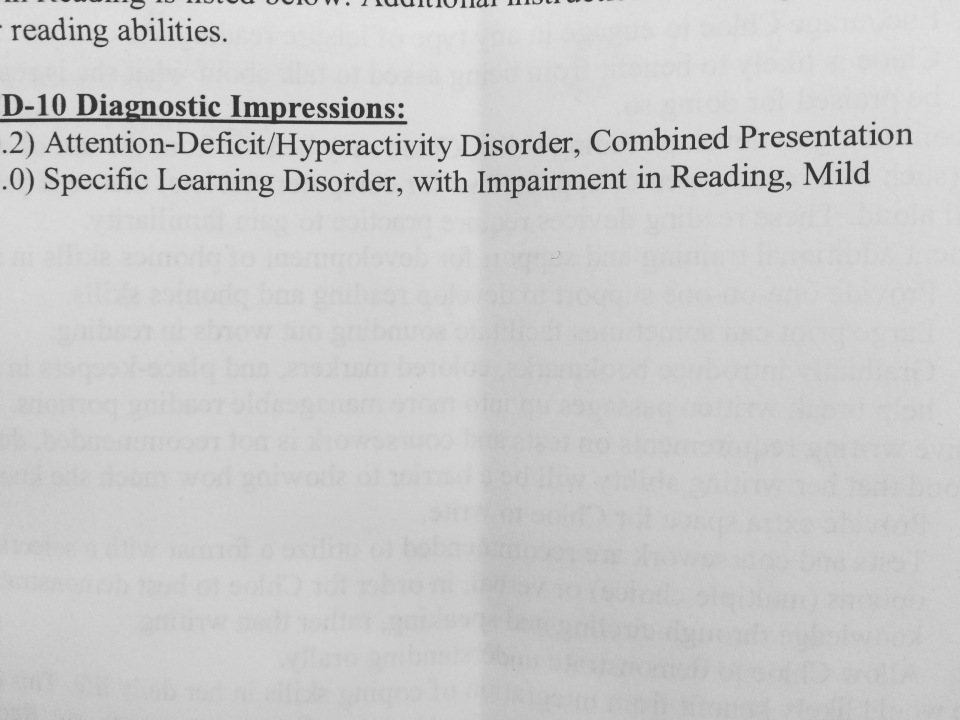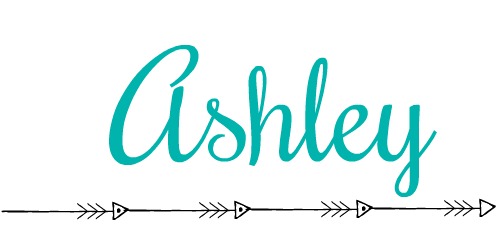You can read part 1 and part 2 if you’d like to catch up.
When we had last left off, the first part of the screening was complete. We went back to finish up the screening, which was very much like “part 2” of the journey. The only difference is that my daughter was EXCITED to go instead of feeling nervous and unsure. That was a huge load off of my mind. At the end, Dr. C said she had all of the information she needed, but that it would be several weeks before she would have the scoring completed to give us the results. With the time of year, there were MANY kids being screened, and she was pretty swamped. I finally got the call that the results were ready, and we scheduled an appointment to receive them.
I really wanted to ask her to just tell me over the phone so I could be ready with questions, but I resisted. I’m working on my patience. ha! Our appointment was yesterday. Dr. C is so sweet and gentle. She wanted to go over what tests she performed and how our daughter scored on them. I’ll share the list, which could vary by where you live and what your doctor feels necessary. I’m guessing it’s pretty similar across the board, but again, I’m not certain of that.
WISC-V
This tests verbal comprehension, visual spatial, fluid reasoning, working memory, and processing speed. Our daughter scored in the 81st-99.6 percentile in all but working memory and processing speed. This is apparently very common in children with ADHD. Those percentiles were DRAMATICALLY different. The full-scale IQ is given. They also give a “general ability index” where they remove the scores for working memory and processing speed. According to the information we were given “The WISC-V is an individually administered, comprehensive clinical instrument used to assess the intelligence of children.”
WIAT-III; selected subtests
This tests Early Reading Skills, Reading Comprehension, Sentence Composition, Word Reading, Pseudoword Decoding, Spelling, Listening Comprehension, and Sentence Composition. According to the information we were given “The WIAT-III is an individually administered clinical instrument designed to measure listening, reading, writing, and mathematic skills.” She was only given select tests for reading since that is the area of concern with dyslexia.
BASC-3 Parent Report Scales
Conners 3 rating scales- parent
These were two large forms that I filled out during the first day of screening.
Then, she read went over her findings with us. Based up on her testing and findings, our daughter has been diagnosed with ADHD and a mild specific learning disorder, with impairment in reading (which is how they say dyslexia now).

I said in my brain “I knew it.” When your mama heart tells you that something is going on, listen. But, I always second guess myself and kept thinking “what if I’m way off?” I certainly didn’t want them to find anything. I don’t want to see her struggle. But, I was prepared to hear it.
What I didn’t really prepare myself for is the “what now?” feelings. I have never struggled with any of these things. ADHD has many options for treatments and ways to cope with it. I am not going to talk about those on here because, quite frankly, I don’t want to hear the opinions of others in regards to whatever decision we make. Plus, every child is different and what works for us may not work for you. What works for you may not work for us. She did suggest frequent breaks during the school day and giving her an outlet for extra energy.
I would love to hear any tips for dyslexia, as this is COMPLETELY new territory for me. We were obviously given some tips. Here are some examples:
-Give her additional time to finish reading assignments
-Allow her time to read books that interest her
-Encourage her to read aloud to herself or someone else
-Encourage her to sound out letter-by-letter words that she doesn’t recognize
-Talk to her about what she is reading and praise her for doing it
-Use a reading device to help her gain familiarity
-Use large print to help with sounding out words (never thought of this one!)
-Provide extra space for writing
-Allow her to orally answer test questions
-Reduce stress and anxiety by allowing her to integrate coping skills
Dr. C said that it’s really good that she’s homeschooled because it allows her the one on one attention that is really beneficial for these circumstances. (I almost asked to get that in writing for all of the anti-homeschooling people in my life.) It was nice to have her full support. I had another fear going into the testing. Because I am a mom, and we all doubt ourselves constantly, I have worried that I’m failing her in every way. Having these test results given to us and seeing that she is far above average in every other subject outside of reading and spelling made me feel a huge sense of relief. She is thriving. I never doubted how smart she is, but I doubted my ability and decisions as all moms do.
Dyslexia is a whole different ballgame that causes kids to struggle in reading and spelling, so I have to adjust and learn to teach the way that she learns. I didn’t sleep very well because my mind was racing last night and this morning about all of this information. Once we make some adjustments and see what helps and doesn’t help, I’ll write up a post and share those things. Dr. C feels confident that once we figure out what works for her, no one will even be able to tell that she has dyslexia. She won’t outgrow it, but she will cope and overcome the obstacles.
For now, our journey has ended. We have a diagnosis. We know what we are facing. We are linking arms with her and facing it head on. This will not define her. It is just another part of her sparkling personality. Will you link arms with us and pray for us as we embark on this journey and figure out what will work best for her to thrive?
If you are local and looking for someone to do similar testing, send me an e-mail and I’d love to give you the information on who we saw.

